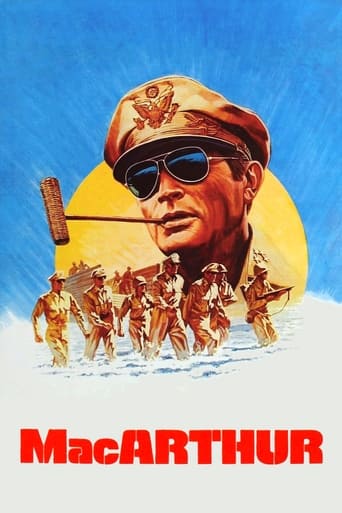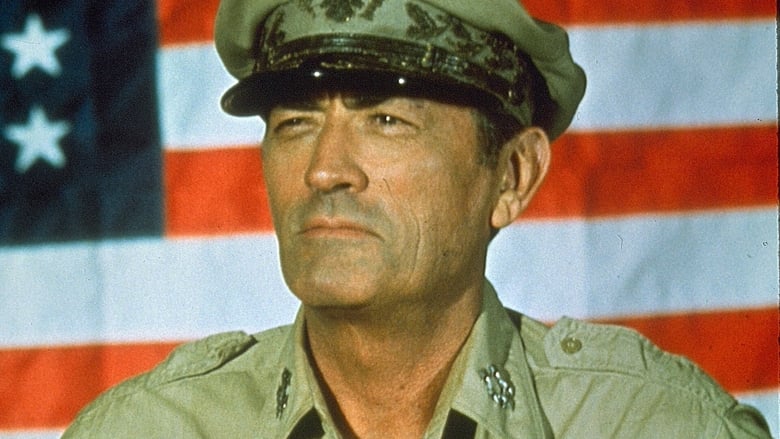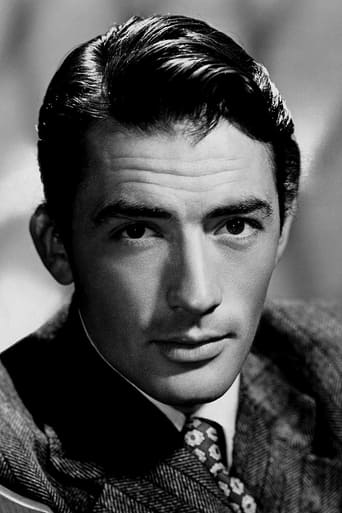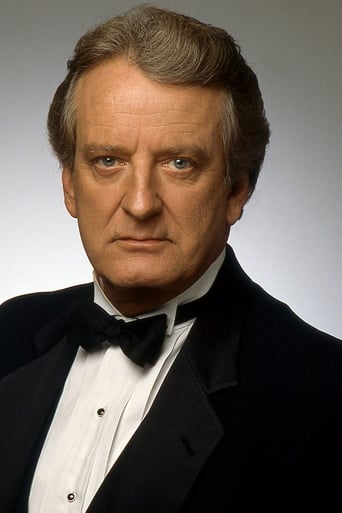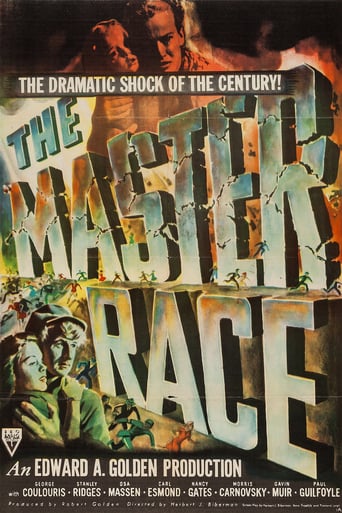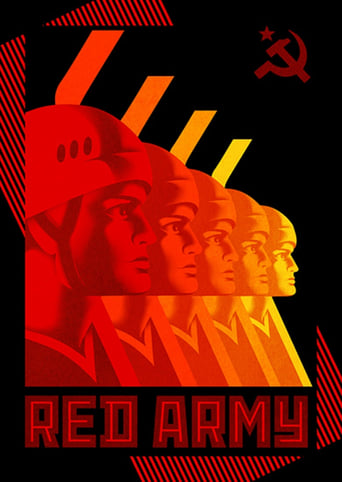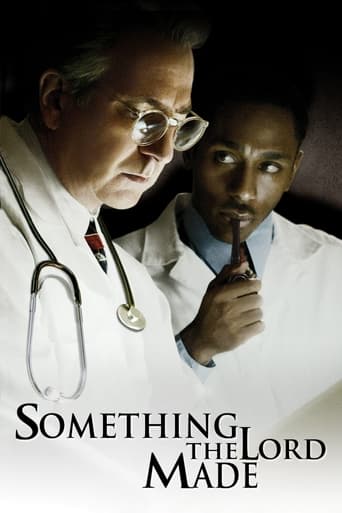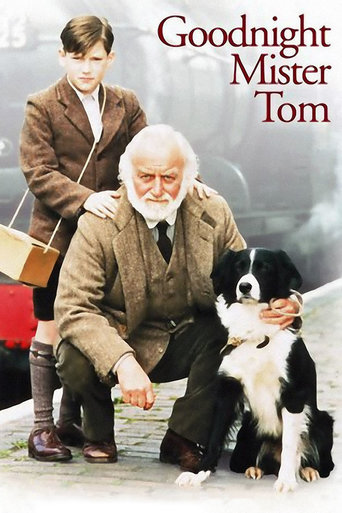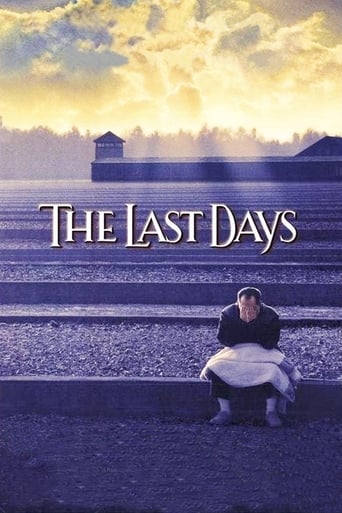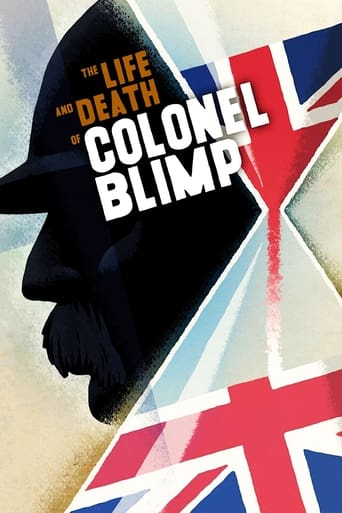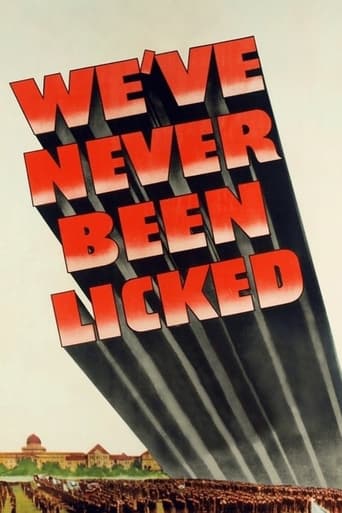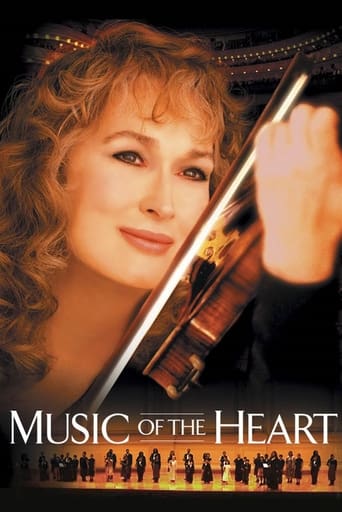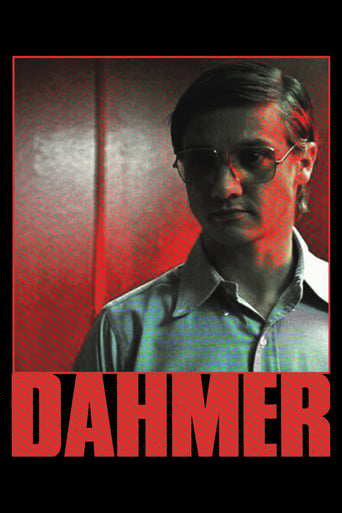MacArthur (1977)
The film portrays MacArthur's life from 1942, before the Battle of Bataan, to 1952, the time after he had been removed from his Korean War command by President Truman for insubordination, and is recounted in flashback as he visits West Point.
Watch Trailer
Free Trial Channels
Cast


Similar titles
Reviews
Best movie of this year hands down!
SERIOUSLY. This is what the crap Hollywood still puts out?
Excellent and certainly provocative... If nothing else, the film is a real conversation starter.
Exactly the movie you think it is, but not the movie you want it to be.
Gregory Peck lends an air of authenticity as Gen. Douglas MacArthur in this film. "MacArthur" covers the apex of the career of one of the most famous American wartime commanders. Gen. MacArthur, like Gen. George S. Patton, was one of the few outspoken commanders in wartime whose views and comments often clashed with those of their leaders or the President. Without exception, these outspoken generals were excellent military commanders, brilliant tacticians, very well read and knowledgeable about their enemies, and insightful about the future. This film takes us from the start of World War II to Pres. Harry S. Truman's removal of Gen. MacArthur from his command during the Korean War. It's interesting that the film doesn't come right out and say that MacArthur is being sacked. Probably many of the younger generations by the end of the 20th century wouldn't know that piece of history, if they even know much about MacArthur. As a biopic, the film's focus is more on MacArthur's military strategy and political savvy, than on his wartime command. So, it has just small segments of combat here and there. On that score, it doesn't equal the military biopic, "Patton." Still, this is a very good film about one of the great military minds and leaders of America. A broadcast reporter is on the scene for the New York ticker tape parade (April 2, 1951) given for Gen. MacArthur on his return to America. The reporter says, "I've never seen anything like it. The entire city has come out to celebrate the return of America's greatest hero. Officials estimate from 7 to 10 million people are here on hand, and that surpasses Lindberg and Eisenhower's homecomings put together."A favorite scene is in the retaking of the Philippines. MacArthur is in a jeep going to check the front lines. A corporal stops him at the front lines and says the only thing ahead is a forward patrol. MacArthur tells the driver to proceed. The corporal says, "I don't believe it. That's the first I've ever seen a commander-in-chief take the point." And, another GI near him says, "Yeah, he's the greatest general since Sergeant York."In the film, MacArthur talks to the press, and he addresses the U.S. Congress and the cadets at West Point. Here are some quotes. For more, see the Quotes section on the IMDb Web page for this film.Gen. MacArthur, "How did Shakespeare put it? A general's wife is the general's general." Gen. MacArthur, "I requested permission to bomb the Yangtze bridges to keep the Chinese out of Korea. They said, 'You might bomb the southern half of the bridges only.' In my 50 years of military service, I have never learned how to bomb half a bridge."Gen. MacArthur, "For the first time in military history, a commander has been denied the use of his military power to safeguard the lives of his soldiers and the safety of the Army. It leaves me with a sense of irrepressible shock." Gen. MacArthur, on appeasement in Korea, "This isn't war. It's half war. It's an immoral compromise with evil." In response to a question from the press about Korea, Gen. MacArthur says, "I couldn't substitute my policy for Mr. Truman's, because Mr. Truman doesn't have a policy."Gen. MacArthur, to the U.S. Congress, "But once war has been forced upon us, there is no other alternative than to apply every available means to bring it to a swift end. War's very objective is victory, not prolonged indecision. In war, there can be no substitute for victory. For history teaches us, with unmistakable emphasis, that appeasement but begets new and bloodier war. Like blackmail, it lays the basis for new and increasingly greater demands until, as in blackmail, violence becomes the only alternative." Gen. MacArthur, "The magnificence and the courage and fortitude of the Korean people defies description. They have chosen to risk death rather than slavery." Gen. MacArthur, "I still remember the refrain of one of the most popular barrack ballads of that day 'Old soldiers never die, they just fade away.'" Mrs. MacArthur on Dwight Eisenhower's GOP nomination for president in 1952, "What kind of president do you think he's gonna make?" Gen. MacArthur, "I think he'll make a fine president. He was the best clerk who ever served under me." Gen. MacArthur, to the West Point cadets, "Today marks my final roll call with you. I want you to know that when I cross the river, my last conscious thoughts will be of the corps and the corps and the corps. I bid you farewell."
History buffs will find plenty to quibble with in "MacArthur." Like a lot of World War II movies, it has its share of minor errors. And American military enthusiasts are certain to have strong opinions on Douglas MacArthur already, which will affect their views of the film.But all in all, I think this is a remarkably balanced look at an extremely controversial person. For those who know little about MacArthur, it's a good place to start. He was a larger-than-life figure, and in this film you can see both why he was revered and why he was despised.Although MacArthur came of age in the 19th century and became a general in World War I, this movie focuses on his high and lows in World War II and the Korean War. During that time he was an iconic figure. "Iconic" is an overused word, but it applies to him. With his trademark hat and corncob pipe, plus his curiously old-fashioned way of speaking and his instinct for controversy, he was unmistakable and larger than life.During the late 1970s, the post-Watergate era, traditional war pictures were no longer in vogue. "M*A*S*H," the mildly pacifist TV series set in the Korean War, treated MacArthur as a rather silly figure. But this movie, made in 1977, takes the man seriously, while showing his flaws clearly. It also is more frank than most classic films about how little consensus there is in warmaking. Leaders quarrel and connive while making policy, and the most loyal grunts are often dismayed at the decisions that put them in harm's way.Gregory Peck is excellent in capturing the complexity of Douglas MacArthur. Peck was an outspoken political liberal, and one has to assume he was no admirer of the unabashedly right-wing MacArthur. But he takes on the man's persona admirably.After heaping so much praise on "MacArthur," I must admit it is not great cinema. It's more interesting than moving. But if you're under 50 and know Douglas MacArthur only as a name in the history books, this will be an eye-opener. Like any good introduction to a subject, it should encourage you to seek other information and form your own opinions about the man and his times.
Name just says it all. I watched this movie with my dad when it came out and having served in Korea he had great admiration for the man. The disappointing thing about this film is that it only concentrates on a short period of the man's life - interestingly enough the man's entire life would have made such an epic bio-pic that it is staggering to imagine the cost for production.Some posters elude to the flawed characteristics about the man, which are cheap shots. The theme of the movie "Duty, Honor, Country" are not just mere words blathered from the lips of a high-brassed officer - it is the deep declaration of one man's total devotion to his country.Ironically Peck being the liberal that he was garnered a better understanding of the man. He does a great job showing the fearless general tempered with the humane side of the man.
No matter what you have to say about MacArthur, critical or otherwise, he shaped events in the Pacific theater of World War II to give him a part of history in the twentieth century. In this well done production with Gregory Peck in the leading role, he gives a candid performance of the flamboyant and publicity seeking authoritative General who turned earlier defeat into ultimate victory. His great speech on arrival from the Phillipines, by train at Spencer Street Station in Melbourne Australia in March 1942 incorporating those famous words - " I came through and I shall return" - was an inspiration to many Australians during their darkest hour.From the time of his arrival in our country he quickly abandoned the idea of defending any mainland invasion by the Japanese and decided on an offensive in New Guinea as a counter attack. Peck is perfect in the role of the self minded MacArthur doggedly pursuing the Japanese back to their homeland while arguing with his own superiors, including U.S. President Franklin D. Roosevelt over his earlier promise to liberate the Phillipines, which was planned to be bypassed. After the Japanese surrender, MacArthur becomes virtual ruler of Japan modifying old customs and instituting sweeping land reforms. His authority remained absolute until the outbreak of the Korean War in 1950, when he clashed with new U.S. President Harry Truman over his successful campaign against the North Koreans and his intention to take on their Communist Chinese backers. Truman, wanting to avoid another world conflict, relieves MacArthur of his command and he is recalled home. Peck is magnificent with his captivating speech before a band of West Point recruits where he details his life and closes the movie with that famous caption " Old soldiers never die - they just fade away". This movie is a must for the younger generation of this world, to know that today's freedom was the result of the sacrifices made by their forbears.To add a final footnote my mother worked at Archerfield aerodrome in Brisbane in 1942 with her sister where they were employed as aircraft riveter's being responsible for the repair of the fuselage of damaged U.S. Aircraft used during the defense of our country during World War 2. She told me well before her death in March 2004 how she took her limited time off from work to travel to central Brisbane just to watch General MacArthur walk down Queen Street from his home base at Lennons Hotel to the AMP building in Edward Street where he had his headquarters.She said what a fine figure he cut, tall and handsome, and full of confidence in his goal of supreme victory. Her expectations in the faith of this great American General were ultimately justified. We are a free country today for the contribution of his great military expertise in the time of our greatest need.

